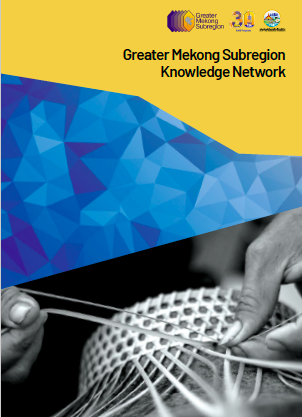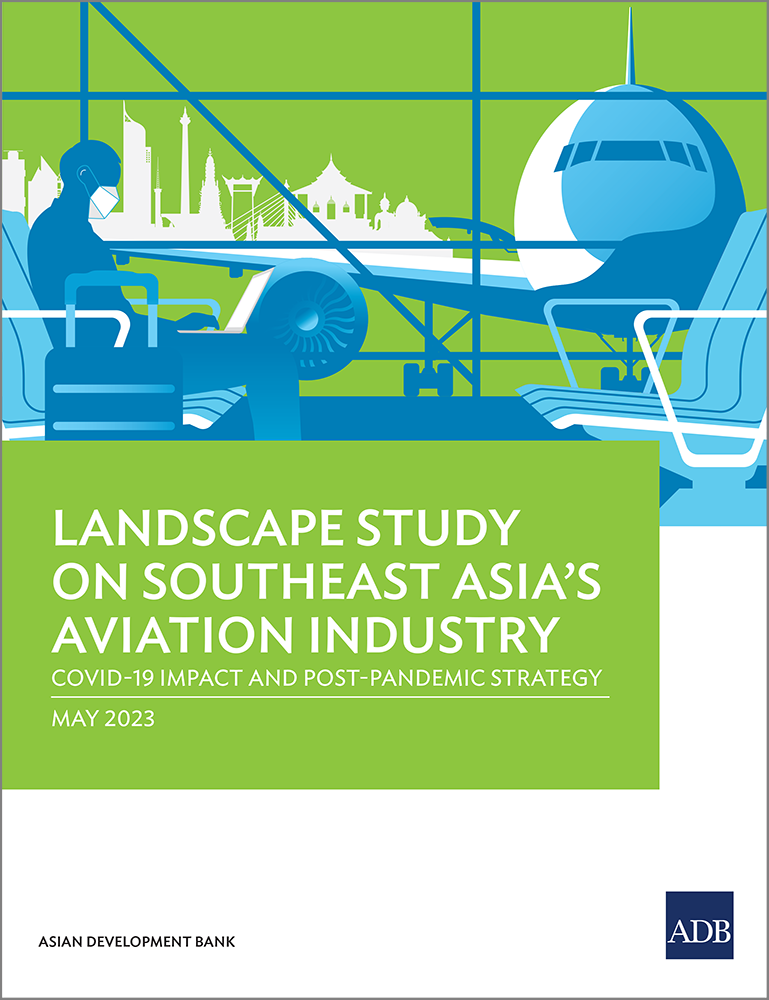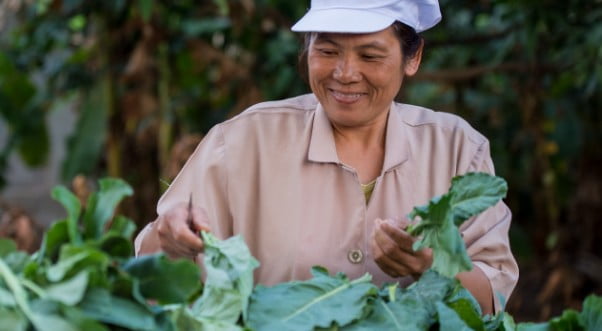What's new?
Transport
Transport lies at the heart of GMS cooperation. The development of physical infrastructure complemented with policies and procedures for crossing borders and developing trade along key routes have been central to efforts to forge a truly interconnected subregion.
Environment
Natural ecosystems – and the food, water, energy, and other vital elements they provide – lie at the heart of the development of the GMS. How these natural resources are protected, managed, and enhanced will determine the long-term sustainability of its environment and economic development.
Energy
New energy solutions are crucial to developing the GMS, where power demand is surging. These include improving energy efficiency and cross-border power trading.
Urban Development
By 2050, GMS is expected to be at least 50% urbanized. Careful planning is needed to balance urban growth with environmental protection and economic equity so that healthy cities can be enjoyed by all residents.
Trade & Transport Facilitation
The GMS Transport and Trade Facilitation Action Program is working to overcome existing barriers in order to link the subregion to the ASEAN Economic Community’s single market and production base, as well as other regional cooperation initiatives.
Health Cooperation
Regional integration creates opportunities to draw on the subregion’s health leadership, human resource skills, and programming experience to address common health challenges.
Tourism
Countries in the GMS are working together to promote the subregion as a single destination for international visitors and encourage communities to enhance the environmental, social, and economic benefits of tourism.
Latest Publications

Facilitating Power Trade in the Greater Mekong Subregion: Establishing and Implementing a Regional Grid Code
This report explains the complex challenges facing the six countries in the renewables-rich Greater Mekong Subregion (GMS) as they work to implement a comprehensive framework to enable regional electricity power trading.

ASEAN Catalytic Green Finance Facility 2022: Building Southeast Asia’s Green Project Pipelines
This document presents progress made and achievements from January to December 2022 of the ASEAN Catalytic Green Finance Facility (ACGF).

Deepening Development Partners' Engagement in the Greater Mekong Subregion Program
At the 7th Leaders’ Summit in 2021, the Greater Mekong Subregion (GMS) leaders approved the Greater Mekong Subregion Economic Cooperation Strategic Framework 2030 (GMS 2030)...

The Greater Mekong Subregion Program Strategy 2030: Results Framework
The GMS Secretariat, in close coordination with GMS countries, will prepare a results framework to trace the implementation of GMS-2030...

Regional Investment Framework 2023-2025
As the Greater Mekong Subregion (GMS) program enters its third decade of cooperation, the GMS Leaders endorsed and adopted the Greater Mekong Subregion Economic Cooperation Program Strategic Framework 2030 (GMS-2030) at the 7th GMS Summit...

Greater Mekong Subregion Digital Economy Cooperation Initiative
Building digitally-connected Greater Mekong Subregion Economic Corridors

Greater Mekong Subregion Knowledge Network
The objective of the Greater Mekong Subregion (GMS) Knowledge Network (GMSKN) is to provide expertise, stimulate discussion, and raise awareness on relevant and emerging issues in the GMS.

Establishing the Task Force on Trade and Investment
The Greater Mekong Subregion (GMS) Economic Cooperation Program Strategic Framework 2030 (GMS 2030) mandates the GMS Program to continue its efforts to develop trade and investment facilitation in the subregion and beyond.

Landscape Study on Southeast Asia’s Aviation Industry: COVID-19 Impact and Post-Pandemic Strategy
Following heavy losses of passenger traffic due to COVID-19, the resurgence of Southeast Asia's aviation market is vital to regional recovery, so this report reveals strategies to help ADB members rebuild a greener, more resilient aviation industry.
Latest News
GMS Countries Roll Out Various Smart Tourism and Digital Initiatives
The Greater Mekong Subregion (GMS) Economic Cooperation Program Strategic Framework 2030 (GMS-2030) emphasizes new possibilities opened by digitalization. At the recently held 51st GMS Tourism Working Group Meeting (TWG-51), GMS countries highlighted various digital initiatives they are implementing, which are helping boost their tourism markets and improve visitor management.
How Tourists Can Support Sustainable Agriculture around the Mekong Region
Agriculture has been a double-edged sword for the Greater Mekong Sub-Region: while it provides an ample source of nutrition and business for GMS countries, it also places undue pressure on the environment.
GMS Officials Discuss Priorities for Climate-smart Agri-food Value Chains and Green Financing
The 20th Annual Meeting of the Greater Mekong Subregion (GMS) Working Group on Agriculture (WGA) was held on 10–12 May 2023 in Siem Reap, Cambodia.
ADB’s Public Private Partnership Academy Delivers Training to GMS Officials
The Greater Mekong Subregion (GMS) Secretariat, in cooperation with the Office of Public Private Partnership (OPPP) of the Asian Development Bank (ADB), organized a training on public private partnerships on 31 May 2023 under ADB's PPP Academy initiative.
Lao PDR Prime Minister Urges Development of Country’s Digital Pillars
Lao People’s Democratic Republic (Lao PDR) Prime Minister Sonexay Siphandone urged for intensive action to bolster the country’s digital pillars in his address at the Ministerial Level Conference on Blockchain 4.0 Development for Digital Economy Development.
Da Nang to Develop Its Logistics Services to Become a Key Logistics Center for Viet Nam's Central KER and the EWEC
The Da Nang People’s Committee approved a project to develop the city’s logistics services and become a logistics center by 2030 for the central key economic region (KER), which includes the provinces and cities of Thua Thien Hue, Quang Nam, Quang Ngai, Binh Dinh, and Da Nang, and the East-West Economic Corridor (EWEC).
Guangxi Plans to Build Green Food Processing and Manufacturing Base
The Guangxi Zhuang Autonomous Region (GZAR) plans to build a green food processing and manufacturing base for the ASEAN, said Mr. Xu Liqing, Deputy Director of the Department of Industry and Information Technology of GZAR.
Thailand’s Unemployment Rate Lowest in 3 Years as Tourism Rebounds
Thailand’s unemployment rate dropped to 1.05%, its lowest in three years, as the country’s tourism industry rebounds. Employment increased to 2.4% in January-March, up from a 1.5% rise in the previous three months, according to the National Economic and Social Development Council (NESDC).
WWF Reports Discovery of 380 Species of Flora and Fauna in the GMS
A new World Wildlife Fund (WWF) report highlights the discovery of 380 new species of flora and fauna in the Greater Mekong Subregion (GMS).
5th Lao-Thai Friendship Bridge Construction Reaches 72% Completion
Construction work on the 5th Lao-Thai Friendship Bridge has surpassed 72% completion, and is expected to be completely finished by the end of 2024. The bridge will connect Paksan, Bolikhamsai Province (Lao PDR) to Bueng Kan Province (Thailand) across the Mekong River.









